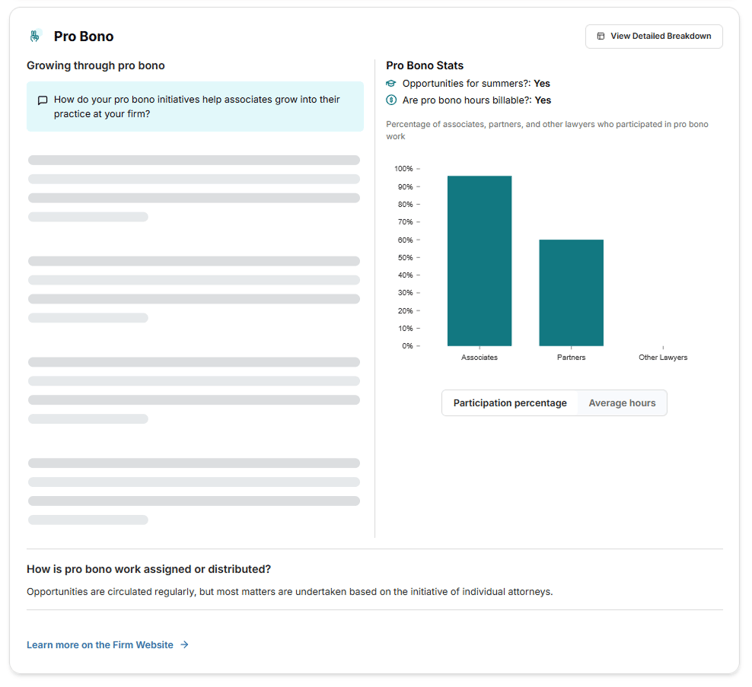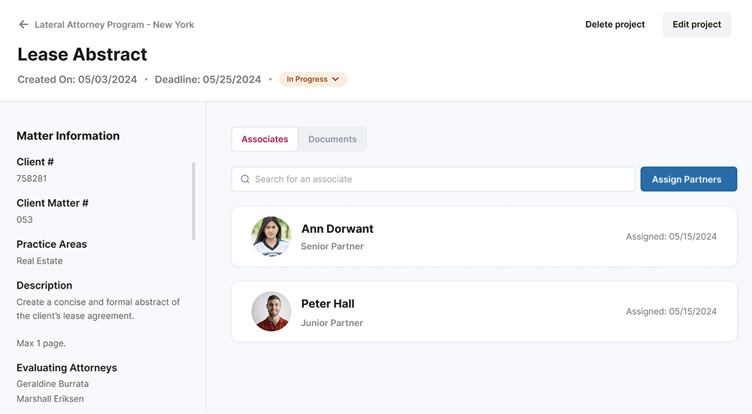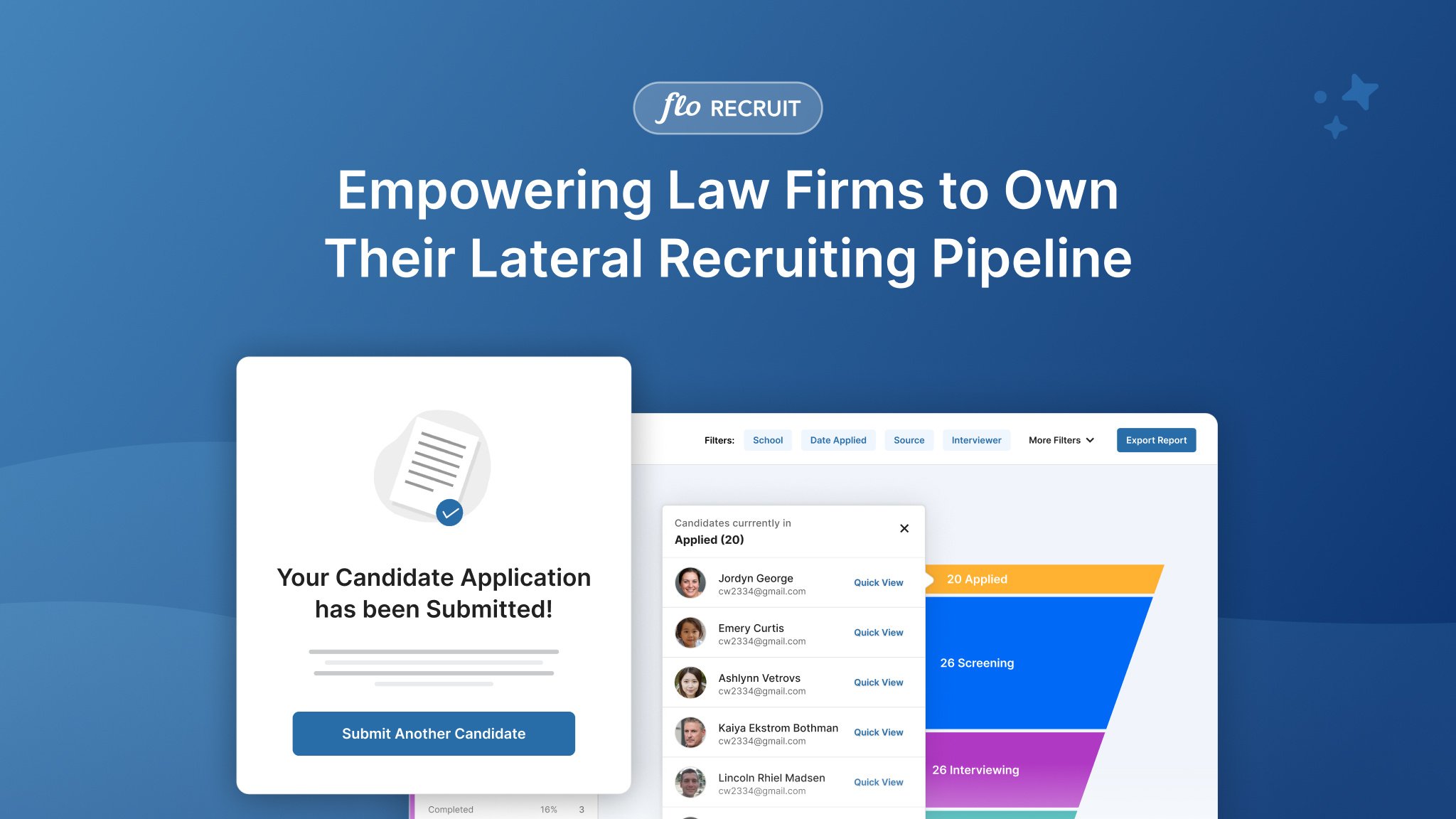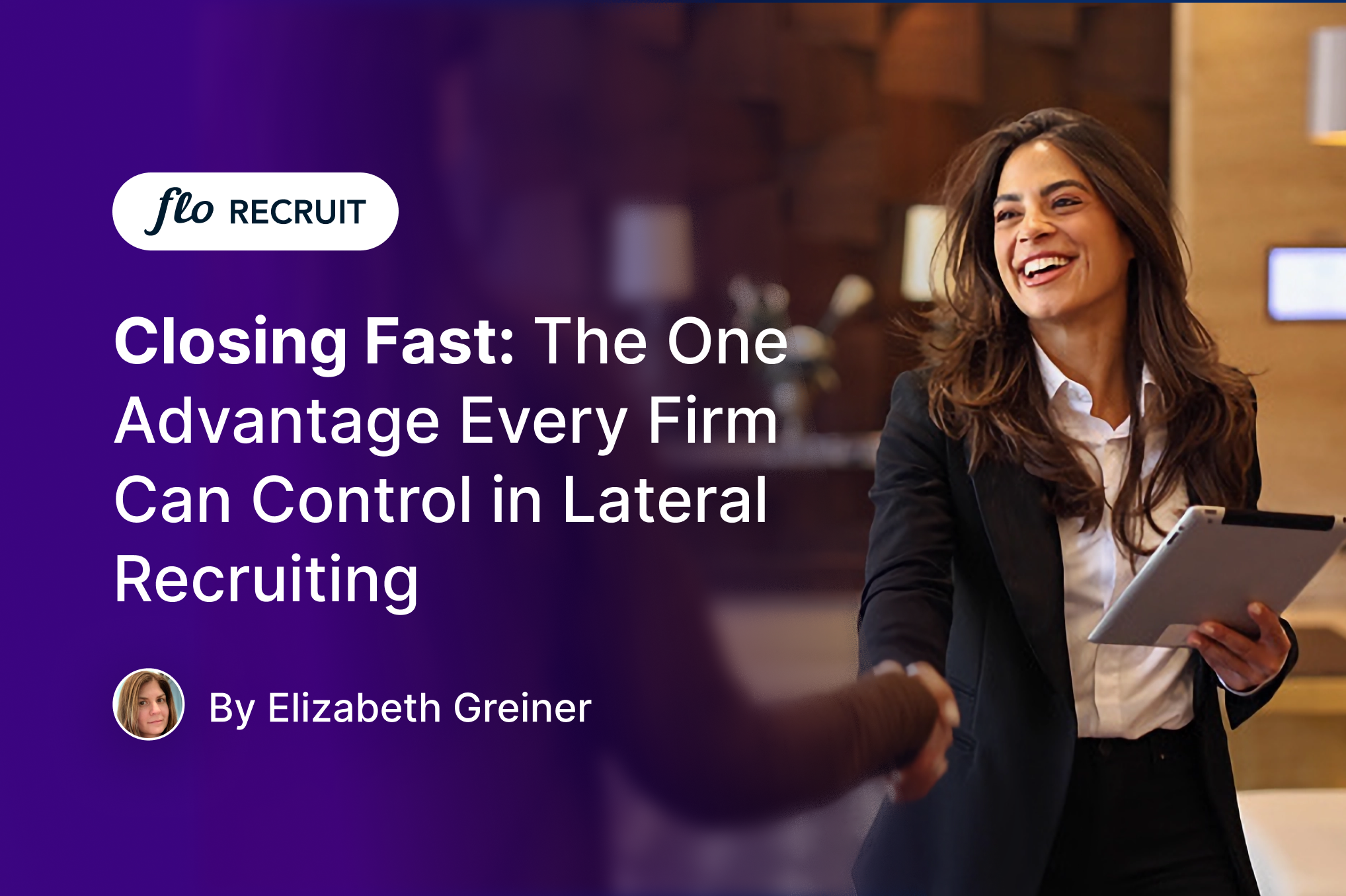How to Land Top Lateral Associates: Answer These 5 Questions Clearly
The lateral attorney hiring market remains competitive, and law firms are looking for ways to differentiate themselves and attract top legal talent. Compensation will always matter, but lateral associates are evaluating much more than their paycheck when considering a move.
Today’s candidates are asking deeper questions about firm culture, growth opportunities, and stability before they say yes, and the firms that answer these questions clearly are winning the best talent.
Here are the top five questions lateral associate candidates are asking right now and how your firm can address them.
1. What Is the Path to Advancement?
Ambitious associates want to understand where their careers could go at your firm and how they’ll get there.
-
Partnership clarity matters. If there is a set path to partnership? Whether measured in years, benchmarks, or competencies, make sure it’s communicated clearly. If the timeline or criteria differ by office or practice group, be upfront about that too.
-
Alternative roles count. Not everyone aspires to be a partner. Candidates want to know about other advancement opportunities, like counsel roles, practice group leadership, or other pathways that allow them to grow and be recognized.
-
Transparency wins trust. If the process is undefined or seems opaque, candidates may hesitate to commit. The more transparent you can be about how advancement decisions are made, the more attractive your firm becomes.
2. What Is the Culture of the Firm Really Like?
Culture is no longer a buzzword; it’s a deciding factor. Candidates are asking:
-
How does mentorship work? Is it formal or informal? Do partners and senior associates genuinely invest in associate development?
-
What does work-life balance mean here? If there is unlimited PTO, is time off encouraged, or is it just theoretically available?
-
What’s the stance on remote work? Candidates want the real answer on whether hybrid means two days in the office or four, and whether there’s flexibility for different practice groups.
-
Beyond billables. How committed is the firm to pro bono work, other initiatives, and contributions that signal a values-driven culture?
-
Partner-associate relationships. Are partners approachable? Do associates feel heard? This dynamic can make or break a candidate’s decision.
Your firm’s messaging about culture should be honest and backed by examples, not just slogans on a careers page.

3. What Are the Business Development Expectations and Will I Get Support?
Lateral associates want clarity about whether (and how soon) they’ll be expected to start contributing to the firm’s business development efforts.
- Expectations should be explicit. If associates are encouraged to engage in BD early, say so, and explain what that looks like.
- Inclusion matters. Do partners bring associates into client meetings or pitches? Candidates want to know if they’ll get meaningful exposure to clients.
- Credit is crucial. If associates find business on their own, is there a clear system for origination credit or recognition? Lack of clarity here is a common frustration and can be a dealbreaker for entrepreneurial candidates.
4. How Stable Is the Firm — Even in an Uncertain Economy?
Lateral associates are looking for reassurance that they’re joining a firm with a healthy business model and resilience across market cycles.
- Communicate openly about stability. Are practice group strengths and firm strategy shared transparently with associates? Candidates appreciate insight into how the firm manages leverage and profitability.
- Balanced practices inspire confidence. Firms with complementary practice groups, for instance, litigation to balance corporate work, can reassure candidates that there’s work even in slower markets.
- Flexibility is a plus. If associates can shift to other practice groups when workloads change, share that information. It signals a commitment to retaining talent rather than cutting headcount during downturns.
5. What Does Day-to-Day Life Look Like?
Beyond the big-picture questions, candidates want to visualize their day-to-day experience.
- Team structure matters. How leanly are deals staffed? Will they work directly with partners or through senior associates?
- Work assignment systems should be clear. Whether assignments are centralized or ad hoc, candidates want to know how work is distributed and whether they’ll have access to substantive opportunities.
- Hierarchy and management style. Are junior associates supported with training and feedback? Are there opportunities to work across teams and offices?
When you can give a realistic preview of what life at the firm looks like, in the practice group they’re interviewing for, you help candidates picture themselves succeeding there.

Final Thoughts
The lateral market is competitive, and associates are more discerning than ever due to the embrace of technology an innovation in today's world by the next generation of legal talent.. They’re not just comparing compensation; they’re asking sophisticated questions about advancement, culture, stability, and day-to-day experience.
Firms that proactively answer these questions, both during the recruiting process and throughout onboarding, position themselves to attract top-tier laterals and keep them engaged long-term.
Transparency and communication aren’t just recruiting tools, but they’re also retention tools. By clearly articulating the path forward, being honest about expectations, and supporting associates’ growth, firms can build a reputation as a destination for the best lateral talent.


